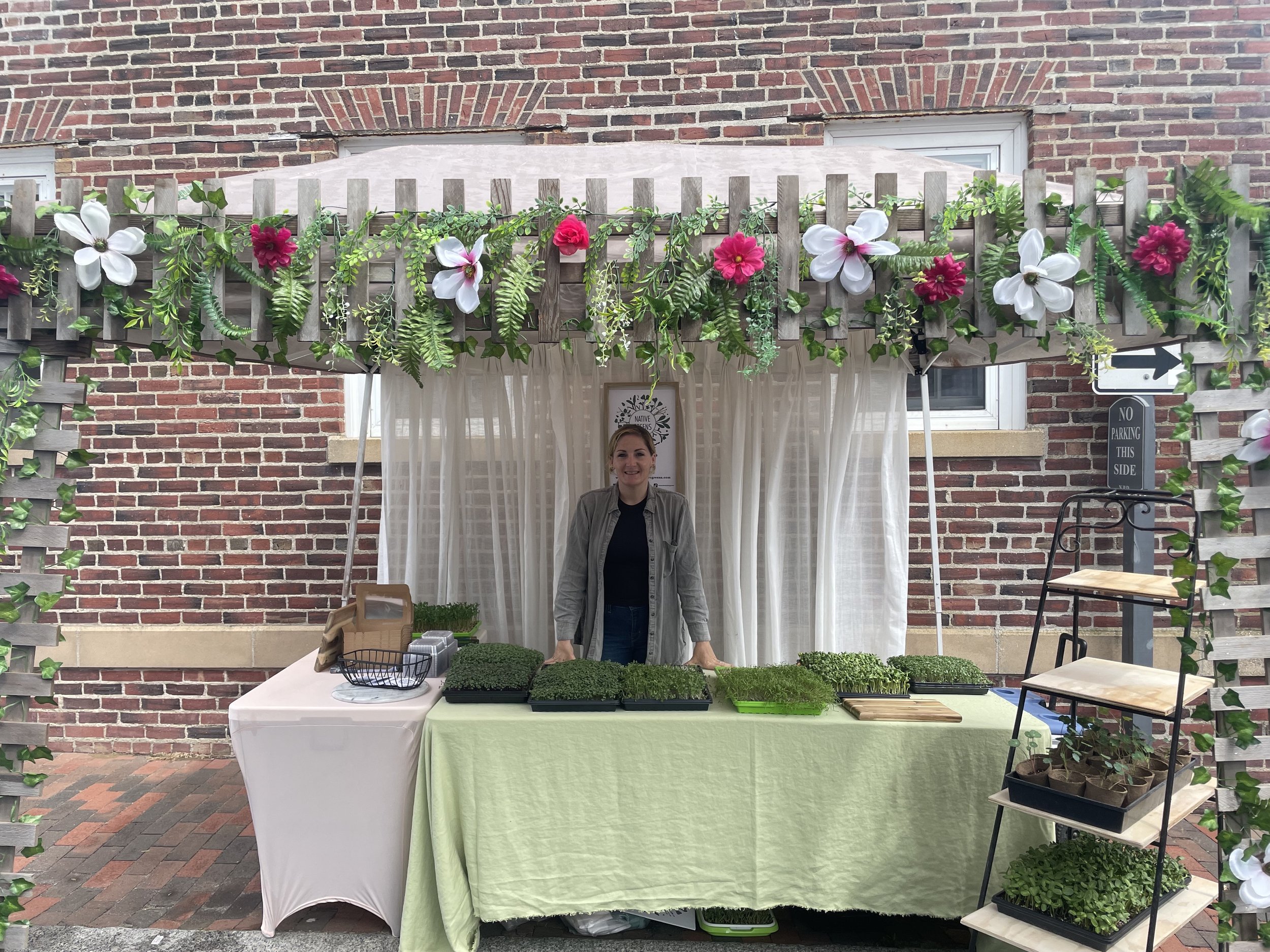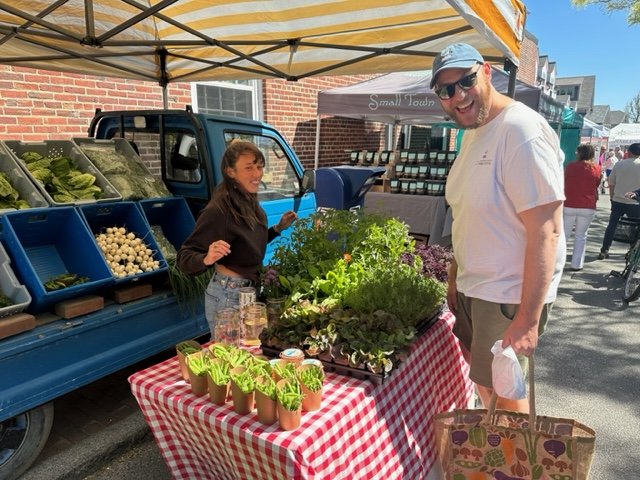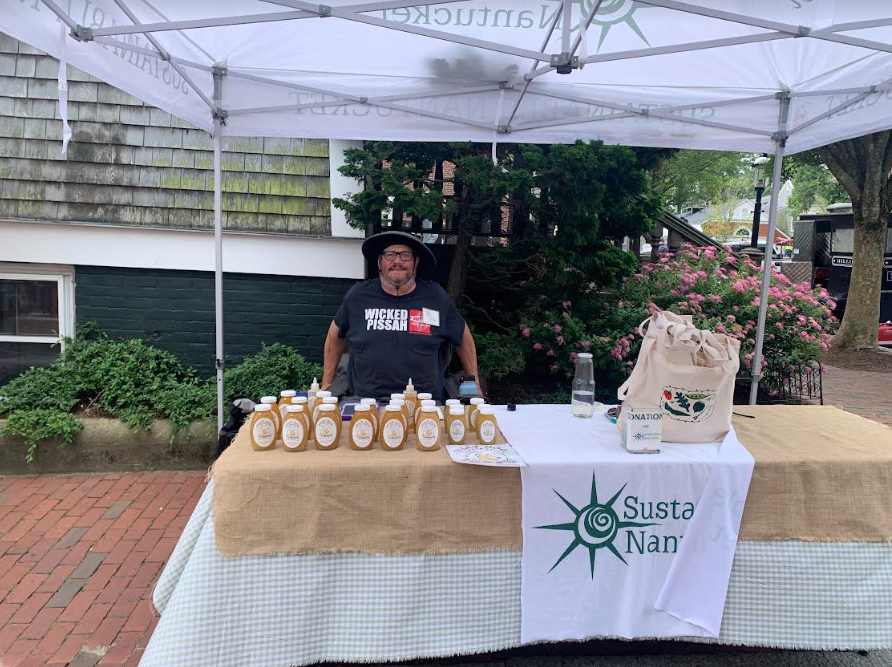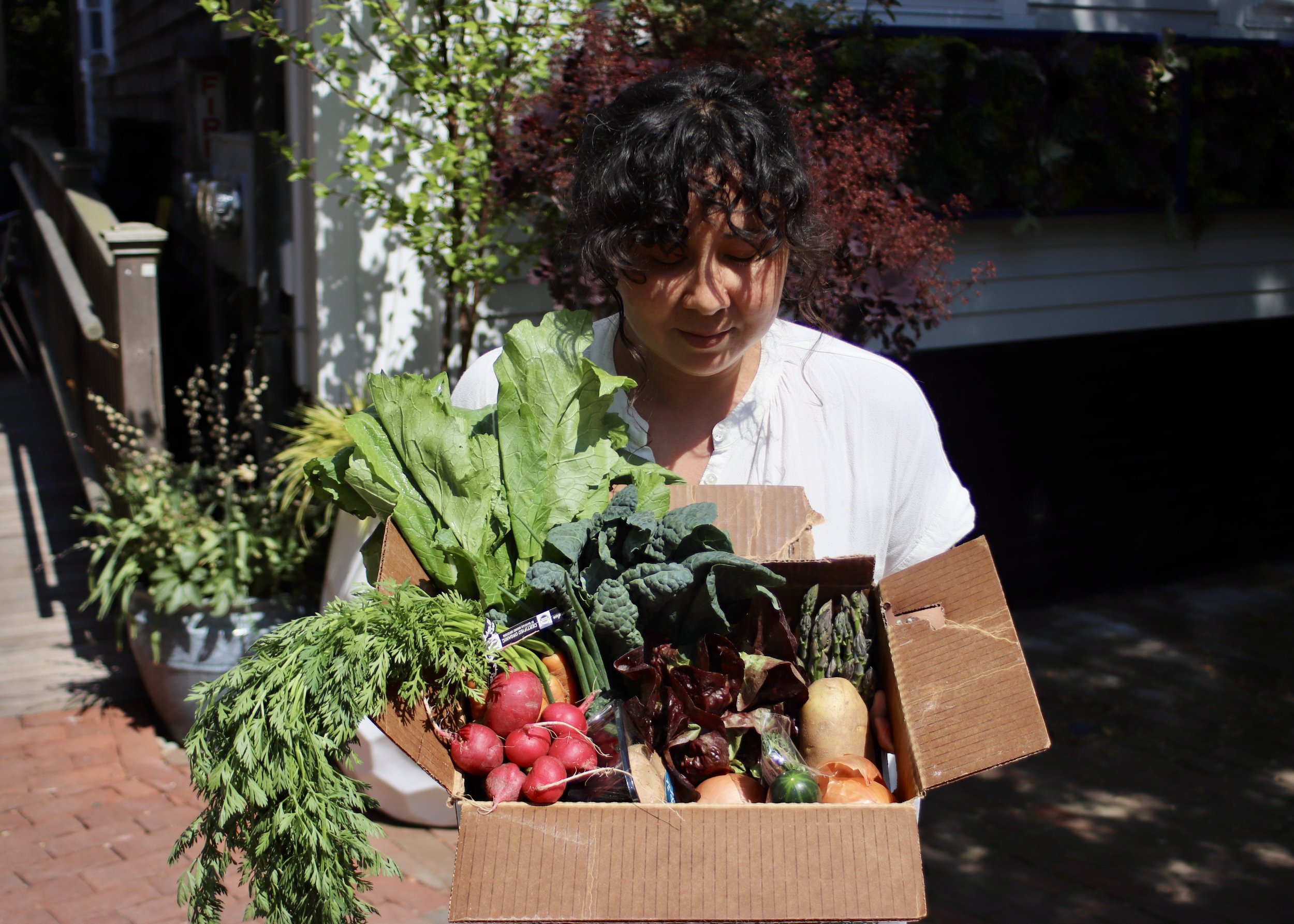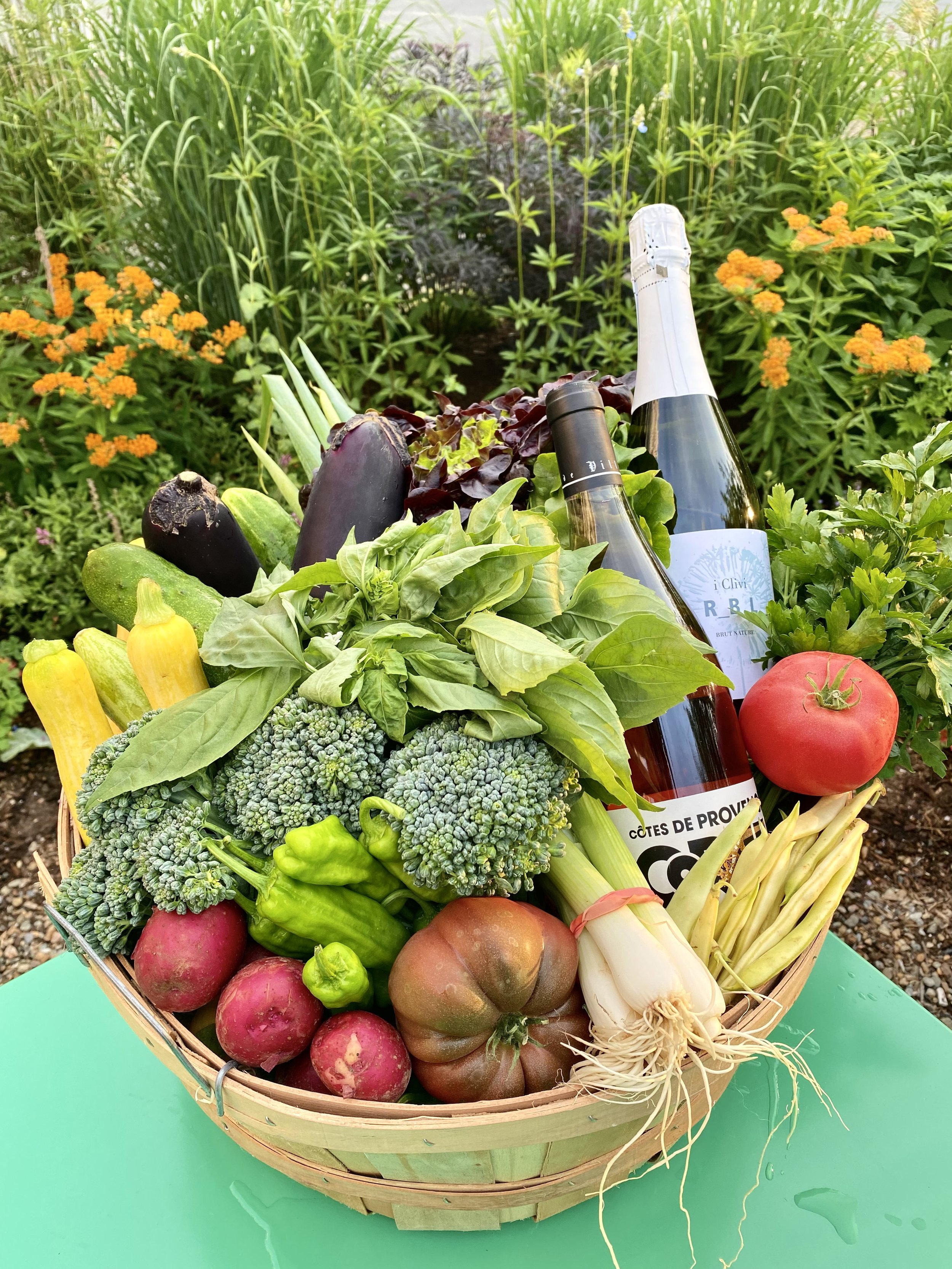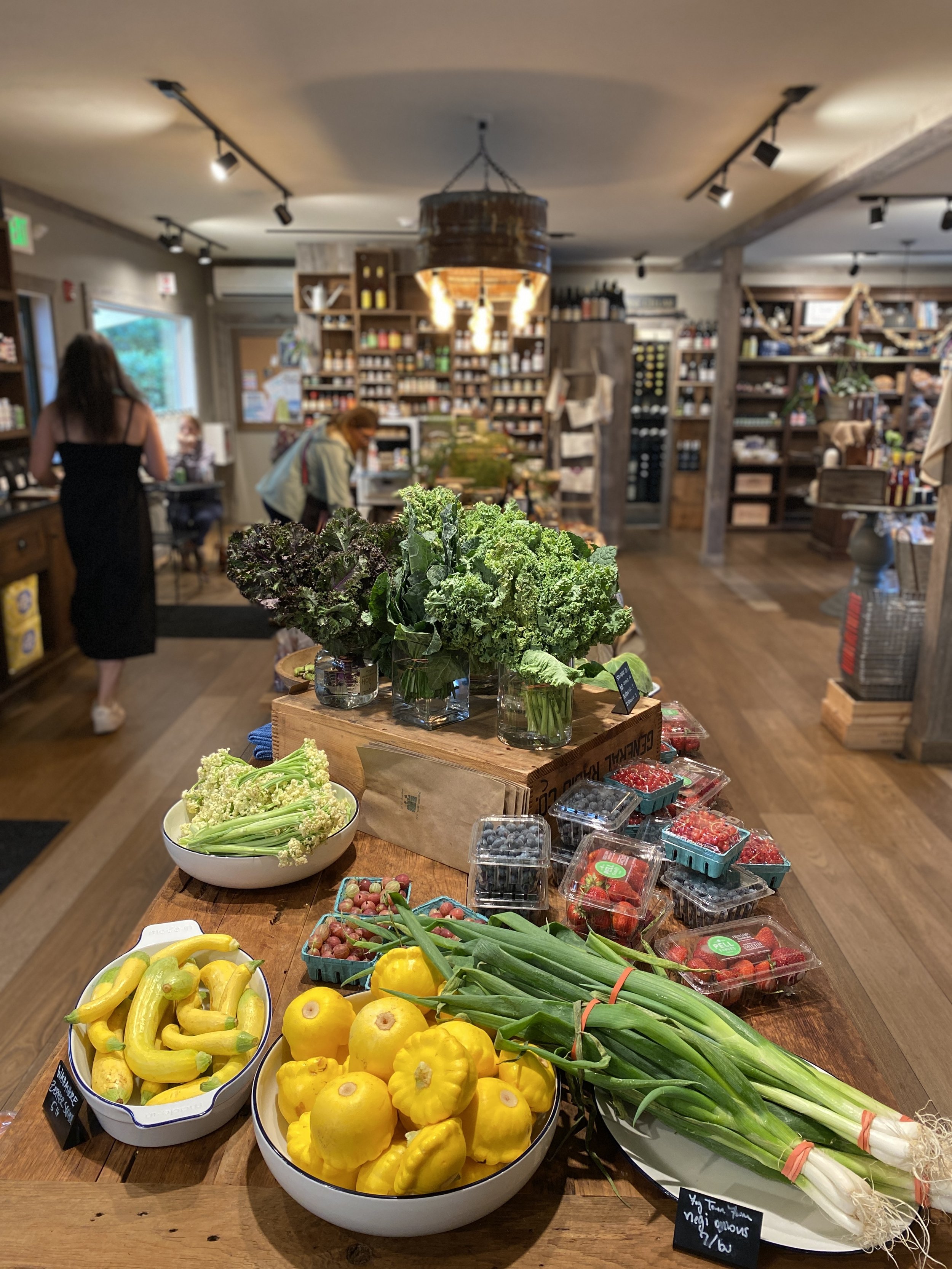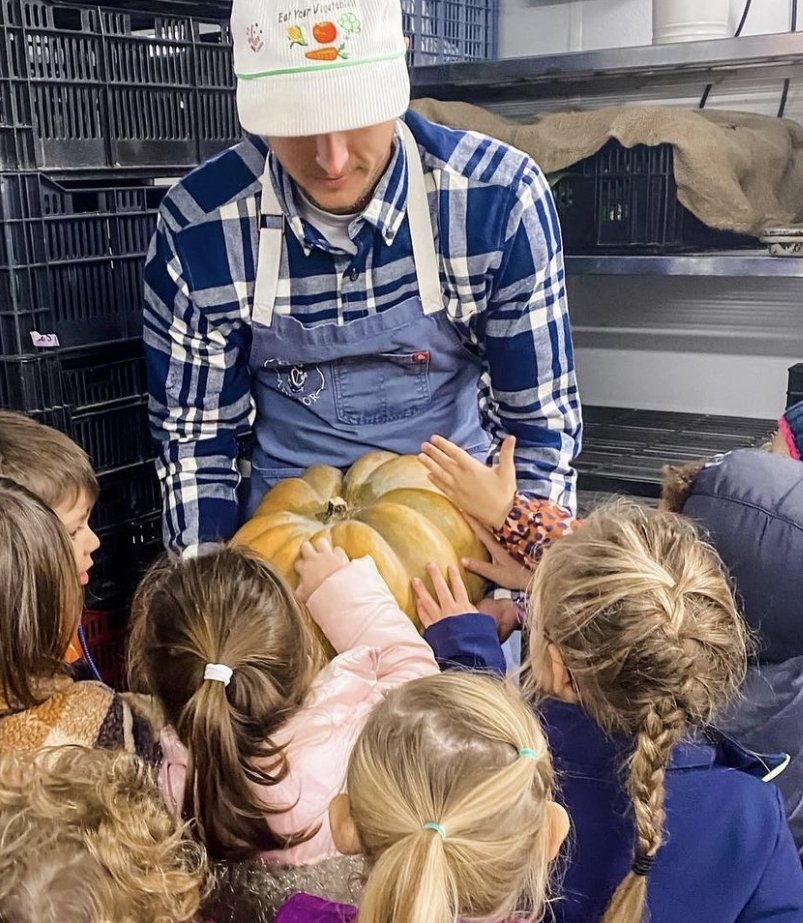Stories from Ashore: Agricultural Sustainability on Nantucket
Photo courtesy of Bill Hoenk and Remain NantucketAt Envision Resilience, we support the exploration of science-based, design-led adaptation and we seek to amplify the anecdotal accounts of climate change in our communities. In this series, Stories from Ashore, we share stories of people in our Challenge sites who are rethinking and re-envisioning their connection to place as a result of a changing climate. Through these stories, we introduce you to people who are imagining a future with increased water, reshaping local food systems, harnessing alternative forms of energy and engaging in positive and hopeful conversations about the future. What will be your response to climate change?
By Anna Popnikolova
On an island 30 miles out to sea—an hour away from the mainland by ferry—sustainable living can be difficult, but is crucial. Year-round residents of Nantucket are beginning, step by step, to shift reliance from outsourced goods to local products.
“How are we as an island to survive if we can’t figure out how to be more self-reliant?” Posie Constable, the Managing Director of Sustainable Nantucket, asked.
Growing up on Oahu, Hawaii, gave Posie a unique perspective on both island life and dependance on the mainland for food.
“Islands are vulnerable,” she said, recalling times where Oahu “had shipping strikes and food wasn’t coming over… that was terrifying.”
Similar to Oahu, the far-away nature of Nantucket means there is often unreliable transport of goods. Maintaining a stable and healthy supply of food to Nantucket’s year-round inhabitants can become a challenge in the face of uncertainty or an emergency. The focus on self-reliance began after residents realized that Nantucket's food supply chain is very fragile. Any event, such as a world-wide pandemic, could easily shatter it. It was not uncommon, especially early in the pandemic, for Nantucketers to discover only empty shelves in the Stop & Shops. And, while this was not unique to this island, it was a worldwide issue exacerbated by distance, travel, essential workers and safety measures.
Seeking balance, individuals around the world began to experiment with homestead-style living. The trends revived during that time include homemade sourdough, hand-knit clothing and small, backyard “victory gardens,” where families could grow their own fruits and veggies instead of braving the grocery store crowds. Posie assumed her position with Sustainable Nantucket during “a period of crossroads.” She arrived in 2020, when residents were more worried than ever about their health—and their food supply.
“We as an island, in the present-day, can facilitate change,” Posie said. As a community, the first step is taking stock and thinking about how to become a little more self-reliant on locally grown food.
Sustainable agriculture isn’t just about farming in a way that sustains the environment and works productively with the land, she explained, it is also about making sure that farming practices can consistently provide high-quality food to the community. One of the ways Sustainable Nantucket has been spurring community involvement with locally grown healthy food and supporting small businesses is through the weekly Farmer’s Market.
The Sustainable Nantucket Farmers and Artisans Market is a summertime favorite, of year-rounders and tourists alike—offering handmade goods, local produce and, in past years, baked goods and treats that visitors can carry easily, as they fill their bags with hand-cut soap and knitwear.
Alexandria “Ali” Penta began working with Sustainable Nantucket around the same time that Posie did, and took over the role of Market Manager and Development Coordinator. This put Ali in charge of the popular market, which takes place seasonally on Saturday mornings on the small cobblestone Cambridge Street, between the post office and St. Mary’s church.
“The market is a place where you can come together and see familiar faces,” Ali said. “The people who participate in the market are local, year-round residents. They are farmers, they are creatives, they are artisans. In my opinion, they are such a core, integral part of our community.”
Locally grown produce and handcrafted goods require time and energy, and often support artisans’ livings. A recurring concern for consumers, especially those who reside on Nantucket outside of the summer season, however, is the price.
In order for artisan lifestyles to be sustainable, these products typically cost more than regular grocery store goods and off-island produce. The price, for many families on Nantucket, may be a strong deterrent—especially for the nearly half of Nantucket families with children in the public school system who experience food insecurity.
As a response, Ali is working to involve the island in a new opportunity: HIP—the Massachusetts Healthy Incentives Program (HIP). HIP benefits work hand-in-hand with SNAP—the Supplemental Nutrition Assistance Program—which helps local families purchase food. HIP gives each participating family an allowance of up to $80 a month, to purchase goods from local vendors, and refunds the spent money to their food benefit card.
“This is one of the ways I think we can be really creative with how local families are accessing locally grown food,” said Ali. “How are we thinking outside of the box?”
Ali explained that incentives to buy local produce allow families to reconsider their food choices, without financial roadblocks. With available funds, community members can spend more time considering both the quality and source of the food they and their families enjoy.
Chris Sleeper, a co-founder of Pip & Anchor, a Nantucket grocer and market, believes that locally grown produce is much more valuable food than is shipped across the country—sometimes, across multiple countries.
“One carrot grown organically on the island has upwards of four times the health benefits of those grown in California, Mexico and Canada being sold in the big stores,” he said.
Chris noted that the value of locally grown produce is, nutritionally, much higher than that of grocery store produce. However, sustainably-grown, nutrient-dense produce often comes with an extra price. “Quality is more important, though,” Chris said.
“Nutrient-dense food should not be thought of as expensive,” Chris said. “The food that is shipped thousands of miles and is sold for significant profits that aren't shared with a struggling workforce should be thought of as expensive.”
The way to encourage families to start reconsidering their food is through education. While healthier produce can be more costly, Chris emphasizes the importance of nutritional value. Pip & Anchor supplies 80 families a week with local produce, assisting the community by providing accessible and convenient alternatives to grocery store produce.
“Everyday we see the consumer starting to value what eating local, sustainable and seasonal food does for your body and our economy,” Chris said. “Accessibility comes from educating the consumer on the value of what they put in their body.”
Education about healthy habits isn’t just relevant to adults. Parents may make household decisions regarding food, but educating children about healthy food can last a lifetime.
Ella Potenza, Farm to School Manager, assumed her position roughly one year ago, and has since been running the Farm to School (F2S) program. F2S incorporates farming and nutrition into school curricula, allowing young kids the opportunity to go outside and work in a garden environment.
Kids learn how to plant seeds, how to water and how to take care of their plants—and of course, then are able to eat the vegetables that they grow in the greenhouse on their school campus. Teaching kids about sustainability helps them to create healthy habits for the future. It teaches them where their food comes from, and to value sustainability for the future of the island. F2S places importance on bringing some of the produce grown by the program into the school cafeteria, as well.
“I think it connects students,” Ella said. “When you’re outside, your hands are in the dirt, it can be therapeutic. We’re lifelong learners, especially with food.”
“Everyday we see the consumer starting to value what eating local, sustainable and seasonal food does for your body and our economy. Accessibility comes from educating the consumer on the value of what they put in their body.”
Ella stressed the impact of seeing a young child pull a carrot out of the dirt for the first time and “seeing where their food comes from.” That kind of hands-on experience with food is something that a lot of young students around the country do not experience.
“I think more and more people are interested in growing their own food, I think people are looking into other ways of feeding themselves and their families,” she said.
The future of sustainable agriculture on Nantucket seems bright, especially with more and more families pursuing homegrown produce or locally-grown resources, and with markets like Pip & Anchor prioritizing the health of the Nantucket food supply, and in turn, the health of resilient Nantucket residents. Resilience is found in the measures that the island community adopted during the pandemic and also in the local salad that Nantucket families place on their dinner tables.
Shifting towards a more sustainable way of running the island begins with encouraging residents toward a more sustainable way of living their lives: Buying local, going to the farmer’s market, taking advantage of educational and financial opportunities when they can. More and more, shoppers are thinking about the impact of their food, both on the planet, and on themselves. It begins with picking up a carrot in the grocery store and pausing, considering.
Anna Popnikolova is a Nantucket native and senior at Nantucket High School. She is assistant Editor-In-Chief of Veritas, the NHS school newspaper, has been writing her entire life, and takes a great interest in the environment and conservation efforts on Nantucket. As a member of the Nantucket Youth Climate Committee, she hopes to continue her involvement with environmental awareness and resilience.



